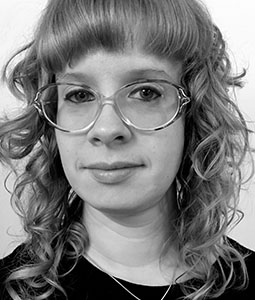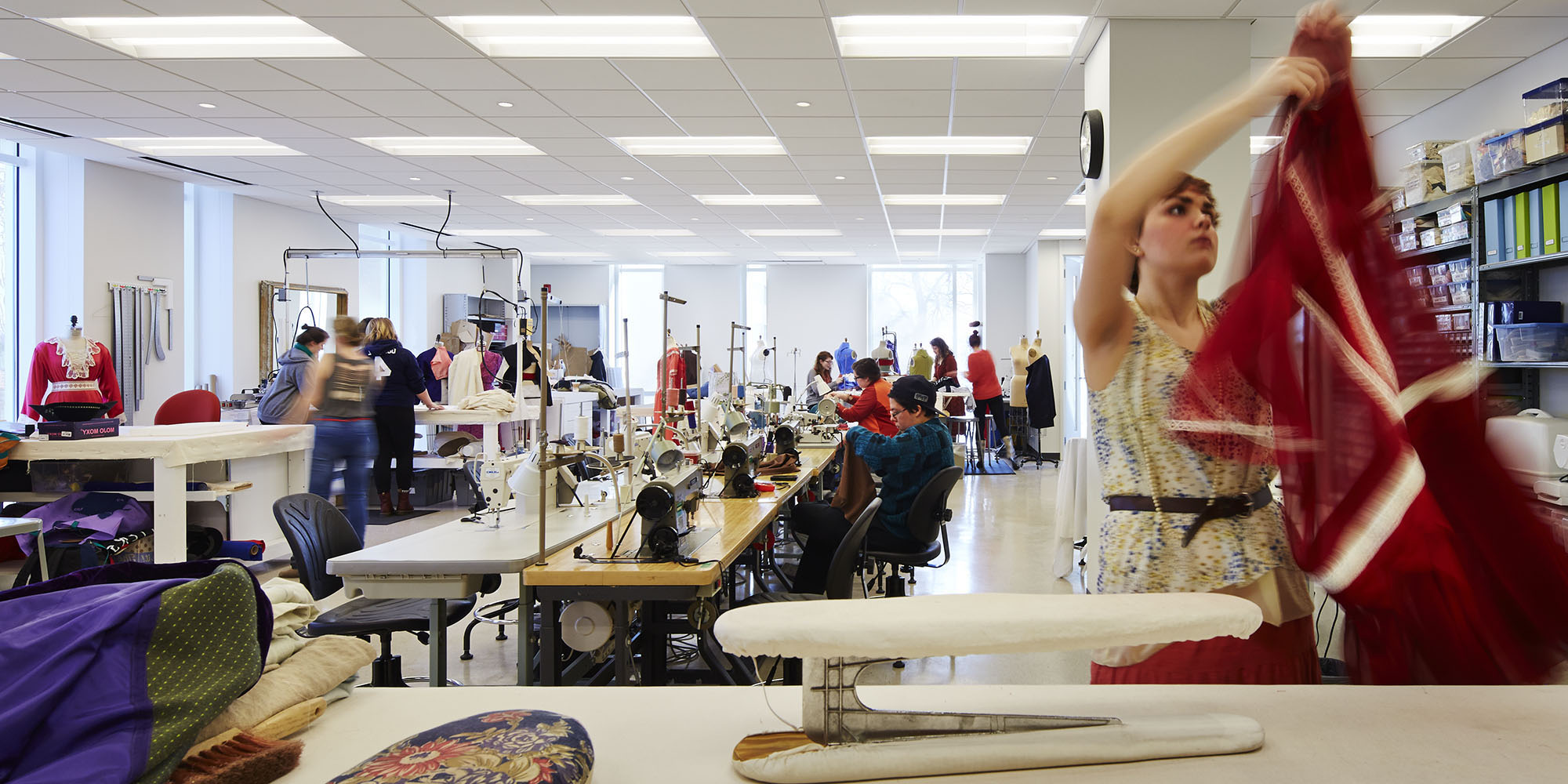/conservatory/PublishingImages/TheatreCostumeDesign.jpg
RandomStandardImageHeaderWH1
The Theatre School’s Bachelor of Fine Arts (BFA) degree in costume design gives students the opportunity to explore and expand their artistic and visual expression while providing practical experience. Modeled after a professional designer’s process, the program allows students to visualize the world of plays through the garments and clothing the actors wear while collaborating with directors, dramaturgs, other designers and technicians, and our professional costume shop staff.
BFA Costume Design Curriculum
The first year curriculum is taken in collaboration with other design/technology majors and is an immersion into the culture of production and design. Students explore common themes and approaches to thinking metaphorically and abstractly with an appreciation of design as an aesthetic distinct from the other arts, and awareness of design considerations as manifested in theatrical productions. Students also begin their four-year drawing progression and take course work in costume technology and stage make-up in the makeup shop. Students will complete three production crew assignments during their first year, usually including one or two assignments in their area of study and one or two in another area of production.
Second year students move into the specific costume design curriculum and focus on the vocabulary and historical precedent of costuming while developing creative responses to plays and characters. Students continue their drawing progression with rendering and explore period style elements through a survey of art, architecture, fashion, and furniture. Costume Technology coursework focuses on the history of clothing construction. Students work on three productions as assistant costume designers to third and fourth year students.
In the third year, students hone their ability to analyze character and express themselves artistically while concentrating on different theatrical art forms – plays, musicals, operas – particularly in the context of modern texts. Students work collaboratively with their peers to propose and justify design concepts and further develop their drawing and rendering ability. Students work closely with the entire production team and Costume Shop to design two shows in our production season.
The fourth year is a transition year, further developing students’ abilities and preparing students to enter the profession. In-class projects will focus on larger period plays and plays with complex situations. Students also explore other areas of design through electives. Production work continues as students typically design one to two more productions in our production season or can opt to complete a professional internship to satisfy a production requirement.
In addition, students may complete a professional internship of their choosing or participate in the Study Abroad Program in collaboration with The Royal Central School of Speech and Drama in London (optional and additional cost).
The year culminates with participation in the Michael Merritt Awards, where graduating students present their portfolios alongside peers from other institutions and established professional designers. With support from faculty, students curate and exhibit their work to an audience that includes artistic directors, alumni, and professionals from the entertainment industry. Students may also have the option to participate in optional Graduate Showcase events which have historically been held in locations such as Chicago, Los Angeles and New York.
Liberal Studies
In addition to the major's requirements, students complete 52 quarterly credit hours (13 courses) in the university’s
Liberal Studies Program. Courses are taken in theatre history, writing, quantitative reasoning and technological literacy, philosophical inquiry, religious dimensions, scientific inquiry, understanding the past, multiculturalism in the United States, and electives. These liberal studies courses are scheduled during the first three years of the program.
Featured Faculty and Staff
 Sally Dolembo | Head of Costume Design
Sally Dolembo | Head of Costume DesignStacy Caballero - Costume Design III
Sally Dolembo - Head of Costume Design
Max Epps - Staff Draper
Alex Hagman - Staff Draper
Randy Handley - Costume and Wig/Makeup Shop Supervisor/Painting & Dyeing
Birgit Rattenborg-Wise - Costume Design III and Textiles
Laura Whitlock - Millinery/Costume Crafts
Students learn from a distinguished award-winning faculty of professional designers and artists, both in the classroom and through individual guidance and advising during production work. Students receive formal and informal feedback from faculty through portfolio presentations and exhibits of their work each year.

Get more information
Complete the form below to receive more information about this degree program.
If the form fails to load or displays incorrectly,
please fill out an
alternate form.